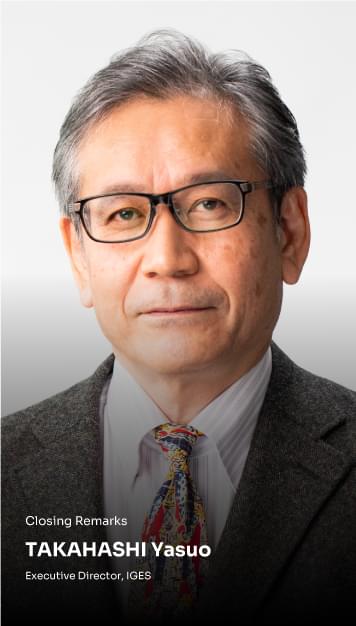Summary
The special session began with a keynote speech by Luis Gomez-Echeverri who presented the results of work on harnessing the synergies between climate action and sustainable development. Mr. Gomez-Echeverri was one of the leaders of a comprehensive and timely synthesis report on synergies that was carried out over the last year with a group of experts, including researchers from IGES, on four thematic areas: 1) knowledge and data; 2) policy frameworks; 3) financing; and 4) cities.
Mr. Gomez-Echeverri pointed out that this synthesis report and other high-level reports underline the importance of leveraging synergies between climate and sustainable development to accelerate progress on the 2030 Agenda and the Paris Agreement. However, countries often struggle to follow this advice. The recently released report offer governments guidance on how they can move synergies forward.
To underline the need for guidance, the report present data on the negative impact of acting in silos, in terms of short-falls in financial resources, millions of jobs lost and many people at risk of hunger. On the other hand, the report also argues that by acting in synergy, decision makers can reduce financing gaps, achieve globally agreed targets faster, and ensure a just transition. However, there are many barriers to taking up synergistic action, including fragmentation across governance, financial flows and knowledge. To help address this fragmentation, the report points to several areas for action. First, it is vital to strengthen institutional coordination, overcome incoherence in implementation, navigate policy constraints by identifying shared idea and visions, and to provide the frameworks, tools and other resources that can facilitate synergistic action. Second, the current financial architecture is not fit for purpose and there is a failure to invest in the amounts needed to tackle climate change and achieve the SDGs, and a failure to invest in the sectors most in need, such as climate-resilient infrastructure and food systems, as well as adaptation. Third, proper knowledge and data is required to enhance our understanding of the economic need to pursue synergies, to accurately reflect physical climate and transition risks, to facilitate mechanisms of co-financing through public and private institutions, and to elucidate concepts and resolve inconsistencies, for example, regarding green taxonomies. Mr. Gomez-Echeverri further gave some examples of enablers, pointing to the need to localise actions, with a central role played by cities. The report also gives several recommendations – policy coordination, inclusivity, institutional capacity, financial viability, resilience building, and the need to drive change.
Eric Zusman then gave a presentation on IGES contribution to the Synergy report, and how synergies can capture the positive interactions between climate and other development priorities. Synergistic actions can translate responses to global, long-term and uncertain threats into local, near-term and certain benefits, and this can help drive big transformative changes to systems. He used the example of Middleboro, Massachusetts (his hometown) to show the links between broad issues like independence, freedom and mobility, and people’s livelihoods and how these helped bring about big changes to the town’s transport system more than a century ago. In highlighting his hometown, he noted that it is important to link synergies to personal experiences, and use those locally felt connections as a way to leverage the response to climate change, biodiversity, and other major environmental threats facing the world today.
Key Messages- A synergistic approach with more cooperation is required for a sustainable future that leaves no one behind
- It is vital to tackle fragmentation across governance, financial flows and knowledge to move synergies
- Linking synergies to personal experiences can be used as a way to leverage the response to climate change, biodiversity, and other major environmental threats









-min.JPG)
-min.JPG)
-min.JPG)
-min.JPG)
-min.JPG)
-min.JPG)
-min.JPG)
-min.JPG)

-min.JPG)
-min.JPG)
-min.JPG)
-min.JPG)